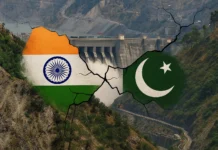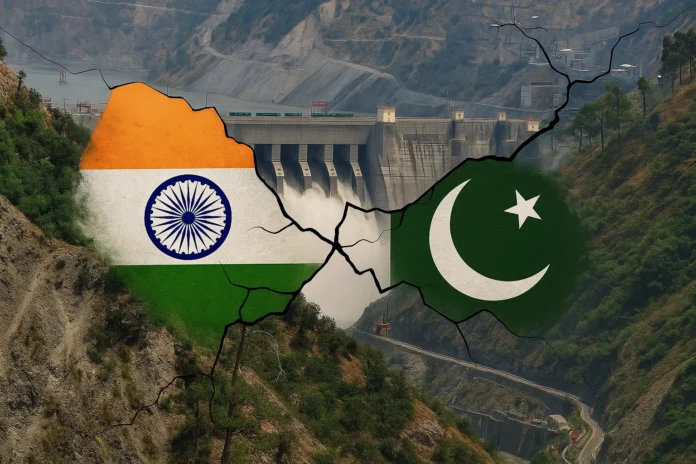India has taken a clear step against the Indus Waters Treaty (IWT) of 1960 by starting work to increase reservoir capacity at two hydroelectric dams in Indian Illegally Occupied Jammu and Kashmir (IIOJK). According to three sources who spoke to Reuters, this step involves a “reservoir flushing” operation to clear out sediment. This flushing began on May 1 and continued for three days. India’s biggest hydropower company, NHPC Ltd, along with local authorities, carried out the process.
Sources said this operation might not immediately cut off water to Pakistan, but it could impact it in the future, especially if more dams do the same. India took this step without informing Pakistan, which violates the treaty that bars such activities. This is the first flushing at the Salal and Baglihar projects since their construction in 1987 and 2008–09, respectively.
The process first releases sediment-filled water downstream, potentially flooding areas, and then lowers the water flow while the reservoirs refill. Locals near the Chenab River confirmed the release of water during the flushing from May 1 to May 3.
Read more: Attaullah Tarar Leads Media Visit at LoC to Expose Indian Propaganda
One source said, “We were also asked to open the adjustable gates for cleaning, which we did from May 1.” The source also stated, “This is the first time such an exercise has taken place and will help in more efficient power generation and prevent damage to turbines.”
Two sources noted that power from the 690-MW Salal project was below potential because Pakistan blocked flushing. Silt also reduced the output at the 900-MW Baglihar project. One source added, “Flushing is not a common thing because it leads to a lot of water wastage.”
India suspended the IWT after blaming Pakistan—without proof—for an attack that killed 26 people in Pahalgam. Pakistan denied involvement and warned, “Any attempt to stop or divert the flow of water belonging to Pakistan will be considered as an act of war.”
Under the treaty, India can only build run-of-river projects, not storage dams. A former Indian official, Kushvinder Vohra, said, “We can now pursue our projects at free will.”
Stay tuned to Brandsynario for latest news and updates










































